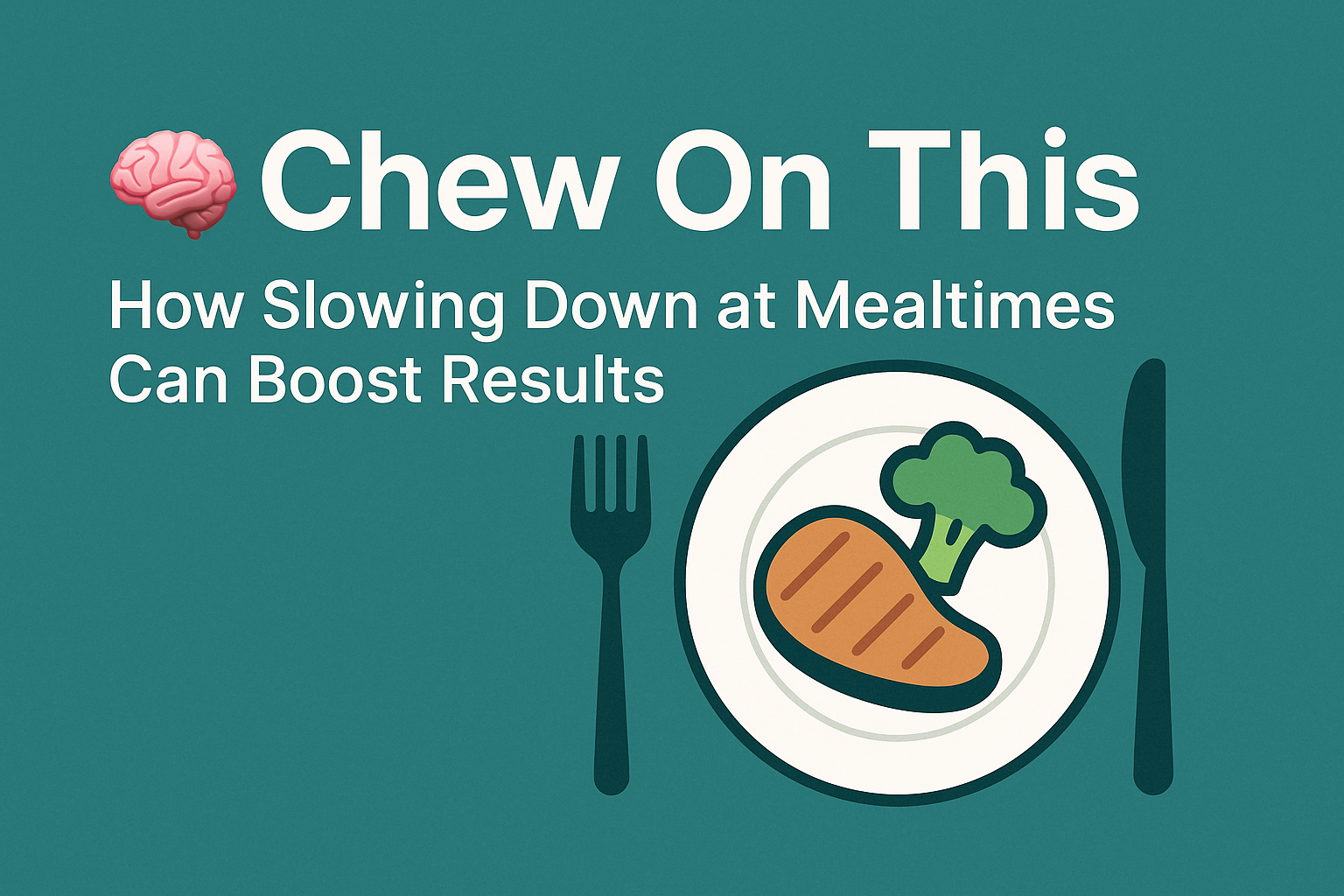
Why chewing your food slowly is one of the simplest and most effective habits for better digestion, portion control, and long-term fat loss.
Chew On This: Why Slowing Down at Mealtimes Can Improve Client Results
In the age of fast food, faster schedules, and scrolling through meals, one underrated habit can make a huge difference in your health and fitness journey: slowing down and chewing your food more thoroughly.
Whether you’re a coach helping clients lose weight or someone trying to build a better relationship with food, chewing might be the simplest, most overlooked tool in your arsenal.
Digestion Starts in the Mouth
Most people assume digestion begins in the stomach, but the process actually starts the moment you chew. Saliva enzymes (like amylase and lipase) begin breaking down carbs and fats during the chewing phase. If clients rush this process, it can lead to poor digestion, bloating, and also nutrient gaps.
Boost Nutrient Absorption
When food is thoroughly chewed, your body has more time and surface area to absorb essential nutrients like protein, iron, and fiber. This is especially important for clients who are in a calorie deficit or also focusing on performance.
Chewing Supports Weight Management
It takes about 20 minutes for the brain to register fullness. If your clients are eating too fast, they’re likely to overeat before their body catches up. Chewing more slowly naturally helps with:
-
Portion control
-
Hunger regulation
-
Better satisfaction with meals
Clients work on building habits like mindful eating and portion awareness. Encouraging slower eating and better chewing is a natural extension of that.
Reduce Stress Through Mindful Eating
Encouraging clients to slow down and chew, forces them to become more present at mealtime. This mindfulness can help:
-
Break emotional eating cycles
-
Reduce cravings
-
Improve their overall relationship with food
For many, eating is the one time during the day they can truly slow down. Why not make it intentional?
Coaching Tip: Use Trainerize to Track This Habit
Inside Trainerize, I use custom habit tracking and auto-messages to help clients stay accountable to small but powerful behaviour changes like:
-
“Take 15+ minutes per meal”
-
“Chew each bite 20+ times”
-
“Eat without devices”
By linking habits to nutrition photos and daily check-ins, clients stay more engaged and coaches can guide behaviour change more effectively.
Final Thought
So, chewing isn’t just about digestion—it’s about connection. To your food, your goals, and your habits. Whether you’re a coach building better behaviour change systems, or a client working toward sustainable fat loss, your results might depend on slowing down and chewing.
Vera Yazid



